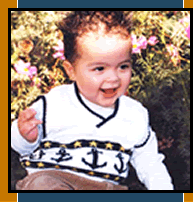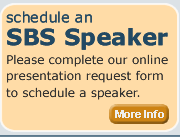

Sign up to receive periodic e-mail alerts, SBS news and special announcements...

|
State licensing inspections lag despite changes Child-care operations deemed risky by licensing officals can be inspected as often as every month. But those with good records can go as long as three years without a visit from the state. Colorado adopted that "risk-based" system after a critical review in 1995 by the state auditor found that the department of human services was falling behind on inspections and neglecting abuse reports. Under the old system, the state tried to get to every home and center regularly, but the 1995 audit found there weren't enough inspectors to do that. Now the new system is under fire. An audit released last week found inspectors were still falling behind - even for facilities with histories of serious problems. The audit also recommended the department re-evaluate the factors it uses to determine which centers need the most frequent inspections. The state assigns a high-risk label based on how long a facility has been licensed, the number and seriousness of complaints, violations identified during inspections, and allegations of abuse and neglect. If problems are severe enough, the state can deny or suspend a license, as it has done in 13 cases this year, an action that in effect shuts down a facility. For instance, the state suspended the licenses of private day-care homes in Aurora and Greeley after the operators were accused last month of shaking babies in their care. When examining a home or center, inspectors show up unannounced and check for cleanliness and safety - such as whether choking hazards are out of a child's reach, outlets are covered and playground equipment isn't broken. They make sure employees are trained and in good health, that they're diapering infants properly, washing their hands afterward and disciplining children appropriately. An inspector who's responsible only for child-care centers has about 300 to check, while an inspector who has both centers and homes typically is responsible for 400 to 450. Colorado had 8,025 child-care facilities as of last month. It costs a provider between $14 and $294 for a license, depending on the size and operating hours of the facility. New child-care homes and centers get probationary licenses are inspected every six months if they haven't reached full compliance. For example, the owner of a home day-care center may have received a license but still needs to finish building a fence around a backyard play area to reach compliance. "We want to make sure they get started right so if there are any problems in the beginning, we can catch them right away," said Dana Andrews, Colorado's licensing adminstrator. Once facilities get permanent licenses, however, the state inspects them from once a year to once every three years depending on the number of complaints received and whether the facility is nationally accredited. The state doesn't conduct its own inspections for all centers across the state. In six counties, the state contracts out inspections to local agencies.
|

Home | Hunter's Story | News Articles | Presentations | FAQ's | Resources | Contact
Site by NolanDigitalArts.com